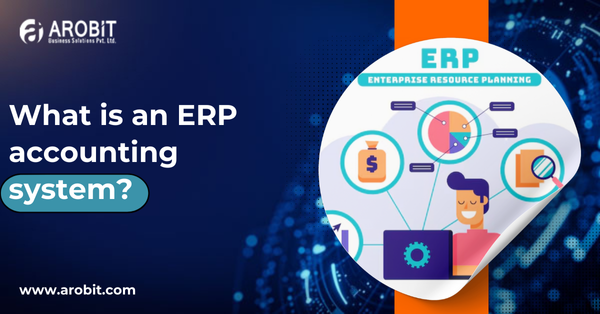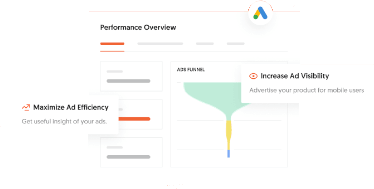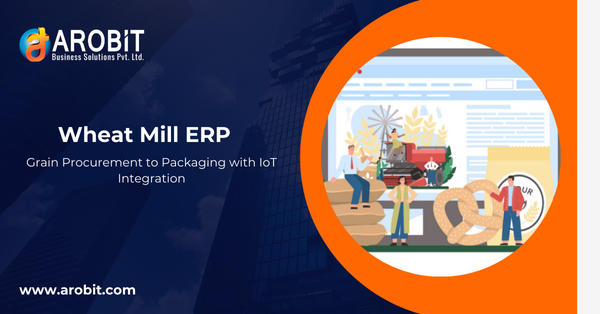By 2025, it is set up to take a hike by adopting ERP systems in almost all prospects with their routine financial operations. It is believed that over 70% of the companies are in the preliminary stages of implementing ERP systems to adapt their accounting functions to be more efficient with operational and financial management functions. ERP accounting with software represents a range of business processes in a central point, involving accounting, all of which has a very significant meaning to business processes that prefer to automate finance, improve visibility across data, and better meet regulatory compliance.
With the centralization of financial data, internal automation, and real-time access to crucial information, accounting ERP plays a role that is highly important in enhancing operational efficiency and improving decision-making. Accurate and timely dissemination of financial information will render efficient services through systematic decision-making. Many ERP companies in India offer specialized ERP accounting solutions, while ERP software development companies and ERP development companies concentrate on customization to suit their business needs.
Key Features of ERP Systems in Accounting
The ERP systems in accounting boast remarkable features that struggle to be replaced by modern businesses:
- Centralized Data Management: The ERP systems have consolidated into one source the different financial data from the many departments that have unified access and significantly reduced data entry that could be a liability. It aided the data integrity exercise and consequently facilitated simpler reporting and analysis.
- Automating Financial Processes: Various processes in the financial systems have been automated by the ERP systems. Such tasks include invoicing, payroll processing, and financial report generation. This is not only less prone to human errors but also saves time and boosts productivity levels.
- Real-Time Financial Monitoring: Real-time tracking of key financial metrics allows businesses to keep a finger on their financial pulse and promptly ensure proactive decisions concerning their financial health.
- Compliant with Regulations: The ERP systems duplicate the efforts taken by firms in ensuring compliance with financial regulations and standards through automation of compliance tasks and auditing trails. That makes financial operations transparent and legally healthy.
Benefits of Integrating ERP Systems with Accounting Software
There are many advantages of integrating ERP systems with accounting software:
- Processing of Payments: Converging the function of receiving online payments and managing them into one platform allows for simplified transactions while ensuring fewer mistakes.
- Improved Cash Flow: Accelerated collection and improved visibility of the receivables tool enable businesses to effectively manage cash flow.
- Greater Security: Secure payment solutions reduce risks of data breaches and fraud, thus protecting financial data and transactions from compromise.
- Enhanced Customer Experience: Client payment processes are made more user-friendly, enabling a higher customer satisfaction and loyalty.
- Operational Efficiency: Lessening problems with manual work saves time and lowers operational costs, allowing firms to put more effort into high-level initiatives.
Some of the key benefits of ERP accounting systems include:
- Automated Financial Reporting: It takes a fair amount of time while preparing financial statements.
- Multi-Currency Functionality: It makes it easier to make transactions and manage finances on a global scale.
- Budgeting and Forecasting Tools: Greatly assists in planning and anticipating financial outcomes.
Best Practices for ERP and Accounting Integration
To maximize success in integrating ERP systems with accounting functionality, the following methodologies should be adopted:
- Make an Integration Plan: Document the integration steps to make the transition convenient.
- Communicate with Stakeholders: Keep everybody informed of interactions to be made with the foresight of avoiding misunderstandings and resistance.
- Invest in Data Management: Cleanse, scrutinize, and look after financial data to guarantee reliable insights and compliance.
Implementing ERP Payment Integrations
There are several advantages to building payment integrations in ERP systems:
- Processing Payments Within ERP Systems: Automating transactions within the ERP decreases manual transactions and processing costs.
- Automation of Accounts Receivable Workflows: Boosts the general efficiency of running receivables by turning invoicing and payment tracking into automated chores.
- Cutting Down on Payment Processing Costs: When transaction expenses go down, profits go up.
- Protection Against Fraudulent Activities: Security measures shield financial data and transactions from fraud.
- Improved Customer Billing and Payment Experience: Smooth and easy payments enhance customer experience and build loyalty.
FAQs
Q1. What is an ERP system in accounting?
A1. This is a software solution that integrates and automates financial processes. It provides real-time insights and enhances operational efficiency by centralizing financial data, automating such tasks as invoicing and payroll, and supporting regulatory compliance.
Q2. What are some types of ERP systems?
A2. The four broad types of ERPs:
- Cloud ERP: This is a hosted solution based on common cloud technology that enables scalability and flexibility.
- On-Premise ERP: This is an installed solution used in-house and provides control over data and infrastructure.
- Hybrid ERP: This offers flexibility and security by combining cloud and on-premises models.
- Open-Source ERP: This allows customization and is cost-effective for specific business needs.
Q3. What is an ERP Accountant?
A3. The ERP accountant is a person responsible for managing and implementing the system of ERP within an organization's accounting department. An ERP accountant ensures that all financial records are kept accurate, regulated, and processed neatly through the ERP.
Conclusion
Integrating ERP systems with accounting functions is crucial for modern businesses seeking to enhance operational efficiency and improve financial management. ERP accounting systems provide for streamlining financial processes, improvement of cash flow times, and customer satisfaction. ERP companies, or ERP software companies in India, play a crucial role in offering customized ERP accounting solutions for many industries.
Ultimately, adopting such an ERP accounting system is imbued with the technology of today and furthering the goals for financial excellence and operational efficiency. By learning about the benefits of ERP integration, along with some best practices, the companies can make the right decision to be a step ahead in today's market competition.








